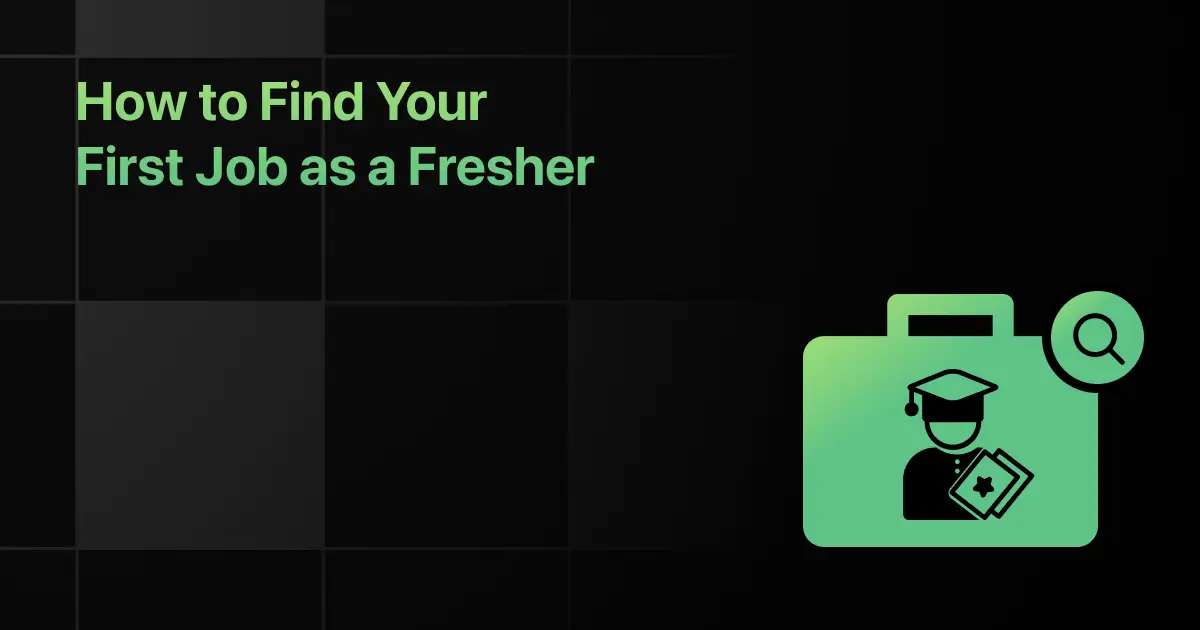On-Campus vs Off-Campus Placements: Key Differences – 2025

Robert Frost once wrote, “Two roads diverged in a wood…” and honestly, that’s exactly what the 2025 placement scene feels like. Freshers are standing at the split between on-campus and off-campus placements, trying to figure out which path will actually lead somewhere.
Aon’s 2025–26 hiring outlook says companies want more freshers this year, but they also want sharper skills and stronger portfolios. Meanwhile, The Economic Times reports that only 7% of Indian colleges achieve full placements, pushing most students toward the off-campus route by default. And with staffing firms, including TeamLease, reporting a rise in off-campus hiring, the “less-traveled” road is quickly becoming the smarter one.
This guide breaks down both paths clearly so you can choose the option between On-Campus Vs Off-Campus Placements that truly “makes all the difference” for your career.
Quick Summary
- On-Campus Placements: Companies come to your college, with a structured process, guided support, but limited options.
- Off-Campus Placements: Apply anywhere, flexible timelines, skill-focused, higher exposure, but self-managed.
- Key Stats 2025: Only 7% of Indian colleges achieve full placement; off-campus hiring is rising (TeamLease & Aon 2025–26).
- Best Strategy: Use both simultaneously, attend campus drives while applying off-campus.
- Preparation: Build skills, projects, portfolio, resume, and mock interviews. Network and track applications consistently.
What is On-Campus Recruitment?
On-campus recruitment, also known as campus placement, refers to when companies attend your college to hire freshers directly. This is essentially the “traditional” placement method, where recruiters will come to your campus to interview and select candidates through a traditional process, such as aptitude, group discussion, technical, and HR interviews. For most students, this is the most straightforward way to get their first job because, for the most part, the company will handle logistical issues, and all you need to do is show up in your most professional self.
For a step-by-step breakdown, check out this detailed guide of the campus placement process.
What is Off-Campus Recruitment?
Off-campus recruitment refers to applying for positions at companies on your own, without the involvement of your college environment. In other words, you are taking your career into your own hands. Most freshers will either use an online portal, apply via the company websites, or through a staffing agency. You can apply to several companies as many as you like at the same time, regardless of your college recruiting process.
On-Campus vs Off-Campus Placements: Key Differences
When we talk about on-campus versus off-campus placements, preference only partially plays a role. It is more of a strategic decision. Each route has its advantages and disadvantages, and knowing the differences can alleviate months of headaches and lost chances.
| Feature | On-Campus Placements | Off-Campus Placements |
|---|---|---|
| Process | Companies come to your college. Testing includes aptitude, group discussion, technical, HR, etc. Colleges will help facilitate and practice. | You will apply directly through portals, the company's direct site, and staffing agencies. You will handle all applications, deadlines, and follow-ups. Often, interviews are virtual or hybrid. |
| Competition | Limited to those in your college batch. Although it is still competitive because not many will apply for the role in comparison to applying directly. | You are competing with many other colleges and a lot of new competitors. Plenty of other students (freshers) are applying for similar positions. |
| Flexibility | Fixed timeline subject to college schedule. Often, you are unable to apply elsewhere while the drive is ongoing. | More of a flexible timeline. Apply for several companies, startups, and industries concurrently. |
| Skill Expectation | Colleges and academics may matter. Top companies still prefer to see skill sets. | Companies typically prefer to see skills, projects, and portfolios. Expected to apply on their own as they can self-learn and demonstrate capabilities. |
| Salary & Packages | Can vary. Top companies offer similar packages to off-campus. College reputation may slightly influence. | Packages vary widely. Skills and niche roles can get higher pay. MNCs usually match on-campus salaries. |
| Opportunities | This will depend on the sponsor's agreements with universities as well. The top companies often will only visit certain colleges that have some established reputation, so being proactive could assist. | Wide range of companies, MNCs, startups, opportunities, and more. Typically, you will have been able to see and experience, and visit other companies' experiences in other industries. |
| Preparation & Support | Typically, a college program will prep and provide workshops and expectations around alternative and on-campus opportunities in college. You will not need as much prep if you are in a college program. | You will need to prep for this opportunity: tests, coding challenges before interviews. You need to motivate yourself to learn. |
| Pros | Convenient, structured, guided, easy logistics | More options, flexible, skill-focused, and exposure to multiple industries. |
| Cons | Limited companies, intense competition, and less freedom in role selection. | Self-managed, higher rejection risk, more preparation needed, and time-consuming. |
Which is better: On-campus or Off-campus placements 2025?
Standing at a point of decision in your career. One option: on-campus placements, the college supports every turn. The other option: off-campus, you’ll have to work on your own.
On-Campus: Easy, predictable, supportive. But only 7% of colleges are fully placed, or rather designated for full placement.
Off-Campus: Freedom, flexibility, skill-based. In fact, fresher hiring off-campus is scheduled to grow in 2025 & 2026.
Best Choice: Use both roads. Engage in campus drives and work on off-campus concurrently. That way, you don’t regret your decision.
How to Prepare for Both On-Campus and Off-Campus Placements as a Fresher?
Getting set for placements in 2025 resembles prepping for a significant adventure. Both on-campus and off-campus paths entail strategy, direction, and consistency. Here’s a step-by-step guide to prepare you for either path:
Step 1: Build a Great Resume
- Your resume makes it matter, so include your skills, projects, internships, extracurriculars, and all of your accomplishments, too.
- Make it specific to each company or job you’d apply for, especially if you’d like to apply off campus.
- Ensuring accuracy, neatness, conciseness, and ease of reading is paramount!
- A great resume can certainly facilitate getting your foot in the door before you even set foot in it!
Step 2: Practice Your Aptitude and Technical Skills
- Companies routinely begin their process with an aptitude test or coding test.
- You should practice every day to maximize your speed and efficiency.
- On-campus tests may follow an expected pattern, while off-campus tests could go awry.
- Resources like Codekata, HackerRank, LeetCode, or actual placement portals can ease the preparation process.
Step 3: Develop Your Soft Skills
- Communication, problem-solving, teamwork, and attitude are relevant aspects of every interview.
- Simulating a group discussion, HR round, or behavioral question is an important practice.
- Clear communication and a confident demeanor can, at times, tip the scales with two candidates armed with similar technical skills.
Step 4: Develop Your Portfolio & Projects
- Particularly for off-campus opportunities, a portfolio or GitHub that highlights projects, internships, and skills can add value of being a more competitive candidate.
- Companies want to see what you have made or contributed to, as well as what is on an application.
Step 5: Investigate Companies & Roles
- While you don’t need to be a subject matter expert, it is important to know where you are applying!
- For on-campus hiring campus drives, determine which recruiters will be attending your college.
- For off-campus opportunities, try to track the company website, LinkedIn postings, or other job portal links.
- Understand the role of interest, required skills, and, if possible, the company culture.
- When you engage recruiters using this background, you can immediately demonstrate growth, which may show the recruiter you are prepared or proactive.
Step 6: Network & Use Connections
- There is real value in going deep with LinkedIn, your college alumni network, and professional networks, as these can offer insider tips or referrals to potential off-campus opportunities.
- Simply connect, engage, and ask thoughtful questions.
- Usually, networking is the most efficient method for opening doors, as sometimes applications alone get you nowhere.
Step 7: Mock Interviews & Practice Sessions
- Attend workshops in college and undergo mock interviews.
- For off-campus activities, simulate either virtual or hybrid rounds.
- Have a professional round with either technical, HR, coding, or case-study rounds.
- The better you practice, the less nervous you will be on that day.
Looking for trusted platforms to practise coding and mock interviews? Here are 10 great websites to kickstart your prep.
Step 8: Track Applications
- Keep your list of all applications, their deadlines, and responses.
- Don’t just depend on on-campus drives for positions; off-campus provides you with enhanced opportunities.
- Think of each application as a mini-interview.
- Consistently applying can bridge the gap between waiting and getting your dream position.
Step 9: Time Management and Scheduling Preparation
- It is essential to manage time correctly by providing a balance between college, preparation, & placement opportunities.
- Make the time investment in a day or week for aptitude practice, coding, soft skills, and applications.
- With a structured timeline, no area will be neglected, and you can avoid the last-minute rush at all costs.
Step 10: Stay Updated and Continue Learning
- Stay up to date with trends, tools, and technologies in the market.
- Take an online course, continue building mini-projects, or learn a new skill.
- Proactivity gives you an advantage over other freshers.
Step 11: Observe Etiquette in Interviews
- Dress appropriately, act with your body language, and act professionally.
- In online interviews, have good lighting and a tidy background, and minimize all distractions.
Step 12: Follow-up & Professionally Communicate
- When you finish interviews or at the conclusion of an application process, a short, polite follow-up email helps you stand out.
- Your etiquette will demonstrate professionalism and interest, especially for off-campus campus drives when there may be hundreds of applications for recruiters to sort through.
Want a focused study plan? These are the high-impact topics you should master before placement drives.
Where to Find On-Campus and Off-Campus Job Opportunities?
Identifying the right opportunities is half the struggle. In 2025, placements are not just about hanging out and waiting for recruiters to come to your college. You have to know where to go and be proactive.
1. College Placement Cells
- If you are considering on-campus placements, your college placement cell is the logical first option.
- They liaise with the companies, arrange interviews, and often run workshops or mock sessions.
- Stay in contact with them, stay up to date with notices, and make sure that you keep to any internal deadlines.
2. Company Websites
- Even though you can apply as a fresher off campus, a lot of companies will initially post fresher jobs on their own websites.
- If you are comfortable applying to companies that do not visit your college, this is your opportunity to apply to multiple companies at the same time.
- Bookmark company websites, set up alerts, and keep track of deadlines.
- It may increase your chances of being seen by the hiring manager if you apply sooner rather than later.
3. Online Job Portals
- Websites or off-campus job portals like Naukri, LinkedIn, Indeed, Internshala, and AngelList are excellent off-campus sourcing sites.
- Use filters for “ fresher jobs” and the industries you are interested in. Make sure your profile is up to date, and stay at it by applying.
4. Recruitment Agencies & Staffing Employers
- Agencies like TeamLease, Randstad, and ABC Consultants connect freshers with companies actively hiring off campus.
- As one of many things they’d do, they offer advice on skills and interview prep, which can be a lifesaver for someone going through the process for the first time.
5. Networking & Referrals
- Never underestimate the power of a connection. Use LinkedIn, alumni groups, professional communities, or even friends or family to refer you for openings.
- Depending on the referral, these often get faster attention than a blind application.
6. Career Fairs and Virtual Drives
- Many companies have begun hosting online recruitment drives and virtual career fairs.
- These will give you a chance to connect directly with recruiters, attend a company webinar, and even do some initial interviews, which could all be online.
- Continue to follow announcements and registration dates with these companies.
7. Internships as a Pathway
- Sometimes, internships can become full-time employment.
- Both on- and off-campus internships allow you to showcase skills, learn about company culture, and get a ‘leg up’ in the hiring process.
Tailoring Your Resume for On-Campus and Off-Campus Applications
Your resume tells your story, but it will only be seen for 7 seconds during placement season. Whether it be through your college or finding the opportunity off-campus, your resume will need to make recruiters stop out of the endless scrolling.
- Keep it clear and one page long
- No lengthy paragraphs
- No visual clutter
- Just the facts: skills, projects, internships, certifications, achievements, etc.
- No offense, in recruitment 2025, it doesn’t matter if you know “MS Word, MS PowerPoint.”
- Recruiters want to see DSA, SQL, Java, Python, Power BI, Digital Marketing, Cloud, or whatever matches the role
- Display your best work
- Your resume should contain 2-3 excellent projects
- Attach GitHub, Behance, portfolio, or LinkedIn.
- If the link is not a hyperlink, it will be invisible.
- Use keywords recruiters use
- Doesn’t matter if you are on campus or off campus; an ATS system is still going to filter resumes
- Match keywords in the job description. Make sure it sounds natural
- Use the HCL GUVI Resume Builder to build an ATS-friendly> clean > recruiter-preferred premium premium-approved resume in minutes.
Placement Trends 2025
- Freshers Hiring Rebound: ~74% of companies plan to hire freshers in H1 2025 (TeamLease).
- Skill-Focused Roles: AI, ML, data, and digital skills are in high demand — premium salaries for AI talent.
- Sector & City Trends: IT, e-commerce, manufacturing, and startups are growing. Top metro cities = more opportunities.
- Hybrid Hiring Models: On-campus + off-campus applications are rising; PPOs and virtual drives are common.
- Portfolio Matters: Projects, internships, and certifications are now as important as grades.
- AI in Recruitment: Automated screening, virtual interviews, and GenAI tools dominate selection.
- Salary Upswing: Average campus salaries growing 3–4% in 2025; niche skills get extra advantage.
- Tip for Freshers: Focus on digital skills, hands-on projects, and applying smartly to both campus and off-campus opportunities.
Final words
Deciding between on-campus versus off-campus placements isn’t a “right or wrong” call. It is about which path aligns with your aspirations, abilities, opportunities, and timeline.
- On campus provides structure.
- Off-campus offers freedom.
Both will change your life if you prepare, showcase your work, and are consistent. And just remember, placement season is not a competition. It’s a process. Your effort determines the offer.
FAQs
- On-campus placements happen inside your college when companies come to recruit students.
- Off-campus placements happen outside college, where you apply directly through portals, LinkedIn, referrals, or company websites.
Yes, absolutely. Most students today follow a “hybrid strategy.” Just ensure you manage timelines well and don’t miss important campus drives.
For many companies, yes. MNCs usually keep salaries the same. But in off-campus hiring, startups and niche roles sometimes offer higher packages because they focus more on skills than college brand.
Neither is universally better; the “better” choice depends on your goals.
- If you want guided support → choose on-campus.
- If you want more options and higher flexibility → off-campus is better.
- Build core skills.
- Create strong projects.
- Practice aptitude and coding.
- Update your resume.
- Keep applying consistently.
- Stay interview-ready throughout the season.
Most top companies do both: TCS, Infosys, Cognizant, Wipro, Accenture, Capgemini, HCL, and several product companies like Zoho and Freshworks.
Extremely important. Your resume decides whether you even get tested or interviewed. A strong resume boosts your chances on campus and is absolutely essential off-campus.
Relying only on one method (either fully on-campus or fully off-campus)
- Weak resumes
- Not preparing early
- Copy-paste project work
- Poor interview answers
- Not applying consistently
- Losing confidence after a few rejections
It gives you structured preparation: aptitude tests, interview questions, company-specific guides, resume tips, and exam strategies. Basically, everything you need to go from “confused” to “placed.”
Related Posts



What is a Good Salary in India for Freshers in 2026
What is a good salary in India for freshers? When you get your first job offer, this is probably the first …
Warning: Undefined variable $post_id in /var/www/wordpress/wp-content/themes/placementpreparation/template-parts/popup-zenlite.php on line 1050







